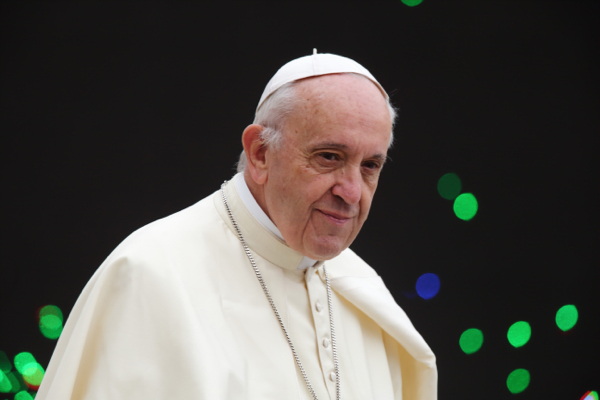During the papal visit to the United States in 2015 Fr Federico Lombardi, then Holy See spokesman, told journalists that Pope Francis was developing Catholic teaching on the death penalty and the environment.
He was responding to a question from The Tablet about whether a shift in the Church’s position was occurring after the Pope used a speech to call for the “global abolition” of the death penalty while talking about the “right of the environment” when addressing the the United Nations in New York.
On Thursday, we saw that development become a definitive with the Pope authorising a change to the catechism on capital punishment.
The death penalty, the revised 2267 clause of the teaching now states, is “inadmissible in all cases because it is an attack on the inviolability and dignity of the person,” and that the Church will work to abolish capital punishment across the world.
In the past, the death penalty had been permitted in Catholic teaching in certain cases in order to protect the common good, as an appropriate response to the gravity of certain crimes and to defend the community against an unjust aggressor.
“Today, however, there is an increasing awareness that the dignity of the person is not lost even after the commission of very serious crimes,” the new text explains. “In addition, a new understanding has emerged for the significance of penal sanctions imposed by the state. Lastly, more effective systems of detention have been developed, which ensure the due protection of citizens but, at the same time, do not definitively deprive the guilty of the possibility of redemption.”
What the Pope’s change shows is that church teaching, rather than being preserved in aspic, can develop to the changing circumstances it is presented with. In unstable, or conflict-ridden countries capital punishment might have been a deterrent, a way of protecting the vulnerable from the dangerously violent. Today, however, prison is more than just punishment and in many countries sophisticated detention centres more than adequately protect the public.
Research into offending also shows that rehabilitation must be part of any sentence for a crime, a view that corresponds with the Christian view that no-one is beyond redemption. It’s something that this Pope, who has made mercy the watchword of his pontificate, repeatedly seeks to underline.
Back in October, Francis gave a speech signalling that change was coming on capital punishment arguing that it was contrary to the Gospel and lamenting the use of the death penalty in the former papal states.
“We are not in any way contradicting past teaching, for the defence of human life from the first moment of conception to natural death has been taught by the Church consistently and authoritatively,” he told a gathering organised by the Pontifical Council for Promoting the New Evangelisation. “Yet the harmonious development of doctrine demands that we cease to defend arguments that now appear clearly contrary to the new understanding of the Christian truth."
This is how the Church makes changes: by developing a deeper understanding of divinely revealed truth. The word tradition has its roots in the Latin word ‘tradere’ which means to ‘hand over’ or ‘hand down’ - it doesn’t mean ‘keep everything the same.’
In the United States, however, today’s ruling is already receiving a mixed response given that 31 out of its 50 states maintain the death penalty. For Catholic lawyers, judges and governors in those countries they now have to contend with a Church teaching on a topic which runs counter to their law of the land. The Pope is unlikely to make support for the death penalty an issue which prevents someone receiving communion, but he will be seeking to change hearts and minds.
While there are already strong critics of Francis’ catechism change - which, to some, may seem like an attempt to change the conversation while the clerical sexual abuse scandal rages - others will be overjoyed.
One of them will be Sister Helen Prejean, a religious sister who has for years has campaigned to abolish the death penalty and was played by Susan Sarandon in “Dead Man Walking” a film where Sister Helen offers support to an inmate on death row played by Sean Penn.
As for the Pope, the criticism of his change in the US is unlikely to worry him and will be assessing his decision according to Christ’s words in Matthew 9:13: “I desire mercy, not sacrifice.”



 Loading ...
Loading ...